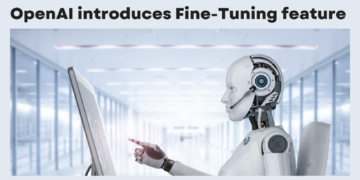The field of AI is has an immense potential to develop, transform and innovate existing practices with the resources in India. With a rapidly growing developer community, the country plays a significant role in the global AI landscape. Recognizing this opportunity, Microsoft announced their plan to upskill 2 million people in India. Two months after this announcement, Google has launched an initiative aiming to train 10,000 Indian startups in AI. The initiative also aims to equip developers with the tools they need to build innovative solutions.
This initiative is not simply about supporting the Indian startup ecosystem; it’s also a strategic move for Google. By fostering a skilled AI workforce in India, Google taps into a vast talent pool crucial for its global AI endeavours. A robust Indian AI ecosystem strengthens Google’s position in the race to develop cutting-edge AI technologies.
Skilling and Supporting the Next Generation of AI Leaders
The heart of Google’s initiative lies in empowering Indian startups. Through established programs like Appscale Academy and Startup School, Google provides startups with the necessary AI-focused programming knowledge and curriculum. Mentorship opportunities further enhance this learning experience, ensuring startups have the guidance they need to navigate the complexities of AI development.
Financial support is another crucial element. Google is offering up to $350,000 worth of Google Cloud credits to eligible startups. This helps address a major hurdle for many startups: access to the cloud infrastructure and computational power required for AI development and deployment. These credits can significantly reduce costs and accelerate the development process.

AI in India: Innovation Through Collaborative Programs
Google’s commitment extends beyond training and financial aid. The company is actively fostering a collaborative environment that encourages innovation. The GenAI Exchange, a three-month nationwide hackathon co-organized with MeitY Startup Hub and Startup India, is a prime example. This hackathon provides a platform for startups to come together, brainstorm ideas, and develop AI solutions that address real-world challenges.
Similarly, the Solve for India Startup Bootcamp (AI Edition) focuses on supporting early-stage startups tackling social issues in healthcare, climate change, agriculture, cybersecurity, and digital public infrastructure. By bringing together startups with a shared purpose and providing them with resources and mentorship, Google fosters the development of AI solutions that can create positive societal impact.
Empowering Developers with Cutting-Edge Tools
Recognizing the importance of accessible and powerful tools, Google is providing Indian developers with a range of resources. The release of Gemma 2, the next generation of Google’s open-source AI model, empowers developers to build more sophisticated AI solutions. Additionally, access to a larger context window on the Gemini 1.5 Pro model allows for deeper data processing, leading to more accurate and nuanced AI applications.
For developers working with Indian languages, Google’s IndicGenBench is a game-changer. This multilingual benchmark specifically designed for Indian languages allows developers to evaluate and improve the language generation capabilities of their AI models across 29 Indian languages. This ensures that AI solutions are not only innovative but also cater to the diverse linguistic landscape of India.
AI Development More Accessible in India for Startups
Cost is a significant barrier to entry for many startups venturing into AI development. Google is addressing this challenge by introducing India-specific pricing for developers using the Google Maps Platform. This discounted pricing structure, offering reductions of up to 70% on most APIs, makes it more affordable for Indian startups to integrate location-based functionalities into their AI solutions.
Google’s initiative has the potential to be a catalyst for India’s AI revolution. By training a new generation of AI professionals, providing startups with the necessary resources, and fostering a collaborative environment, Google is laying the groundwork for a vibrant AI ecosystem in India. The success of this initiative hinges on several factors, including the effectiveness of the training programs, the ability of startups to leverage the provided tools and resources, and continued support from the government and industry stakeholders.
However, the potential rewards are significant. A thriving Indian AI ecosystem can create innovative solutions that address local challenges. I can also contribute significantly to the global advancement of AI technology. With Google’s commitment and the talent pool India possesses, the future of AI looks bright.




























